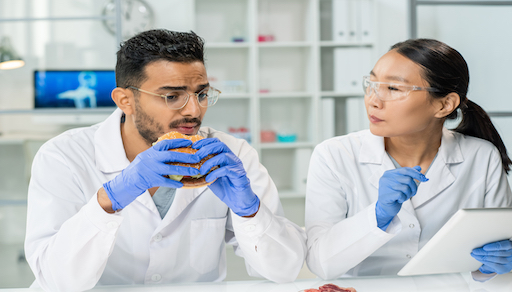Laboratories are complex and specialised environments where precision, accuracy, and safety are extremely important. Whether you’re a seasoned researcher or a newcomer to the lab, there is one fundamental rule that should never be ignored: do not eat or drink in a laboratory setting. This article delves into the compelling reasons behind this rule, highlighting the critical importance of maintaining a food-free and drink-free lab environment for your safety, and the integrity of your research.
Risk of Contamination
One of the most significant reasons to abstain from eating or drinking in the laboratory is the risk of contamination. Laboratories are home to a wide range of chemicals, microbes, and sensitive instruments, all of which can be easily contaminated by food or beverages. Consuming food or drinks in this environment increases the chances of contamination, as spills, crumbs, or droplets can easily mix with these elements.
Health Hazards
The risk of contamination goes both ways. Contaminated food or drink poses a direct threat to your health. Chemicals or microbes may end up in your meal, leading to serious illness or injury. Imagine inadvertently consuming a solution that contains hazardous chemicals, or unknowingly ingesting a microorganism that can make you sick. To avoid such risks, it’s crucial to keep food and drink far away from the lab bench.
Equipment Damage
Another reason to avoid eating or drinking in the lab is the risk of equipment damage. Laboratory equipment is often expensive, delicate, and essential for research. Eating or drinking in the lab increases the likelihood of accidents like spills, which can wreak havoc on sensitive instruments. Microscopes, centrifuges, spectrometers, and even computers are vulnerable to damage from liquids and crumbs. Consider the cost of repairing or replacing a piece of lab equipment due to a careless coffee spill or a dropped sandwich. These avoidable incidents can result in substantial financial loss, and disrupt your research activities.
Exposure to Hazardous Materials
Many laboratories deal with hazardous materials that require careful handling. Ingesting even a small quantity of a hazardous substance can have dire consequences, including severe illness or death. By eating or drinking in the lab, you not only risk contaminating your food, but also exposing yourself to the potential ingestion of dangerous compounds.
Adherence to Lab Policies
Laboratory safety is not a matter of personal preference; strict policies and regulations often govern it. Most institutions and laboratories have clear guidelines in place regarding food and drink consumption within their premises. These rules are put in place to protect researchers, maintain the integrity of experiments, and ensure the overall safety of the laboratory environment. A common lab policy is to have designated areas for consuming food and beverages, such as break rooms or cafeterias. Familiarise yourself with your laboratory’s specific rules and adhere to them diligently to avoid any undesirable repercussions.
In conclusion, the importance of not eating or drinking in a laboratory setting cannot be overstated. The risks of contamination, equipment damage, exposure to hazardous materials, and violations of lab policies are substantial, and should not be taken lightly. Your safety, the safety of your colleagues, and the success of your research depend on your commitment to maintaining a food-free and drink-free laboratory environment. Remember, a momentary lapse in judgment can lead to costly consequences. Stay vigilant, follow lab protocols, and prioritise safety above all else in your laboratory work.

